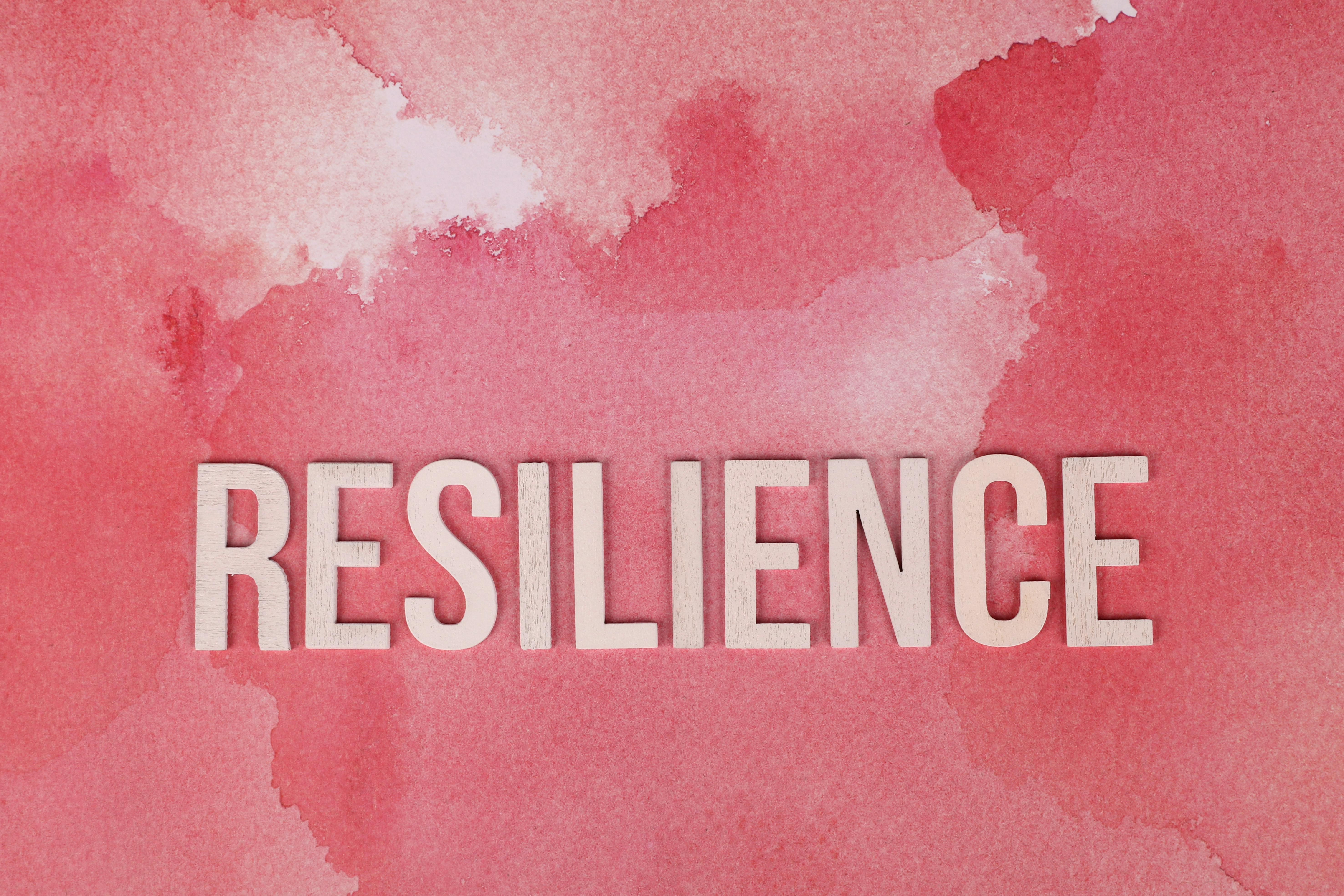In times of adversity, it’s important to develop resilience to effectively navigate through challenges and come out stronger on the other side. This article will guide you on how to develop resilience, providing practical tips and strategies to cultivate a positive mindset, build strong support networks, and adapt to unexpected circumstances. By developing resilience, you’ll be empowered to face adversity head-on and thrive in the face of life’s challenges.
Recognize the importance of resilience
Understand what resilience is
Resilience can be defined as the ability to bounce back from difficult situations and adapt to change. It is the inner strength that helps you cope with challenges and setbacks. Resilience is not a fixed trait; it can be developed and cultivated over time. By recognizing the importance of resilience, you acknowledge that it plays a crucial role in navigating through the ups and downs of life.
Learn why resilience is crucial in times of adversity
When faced with adversity, resilience is the tool that allows you to navigate through the storm and come out stronger on the other side. It enables you to keep pushing forward, maintaining your mental and emotional well-being even in the face of adversity. Resilience helps you cope with stress, overcome obstacles, and persevere when things get tough. It is through developing resilience that you can find the strength to face challenges head-on and grow from them.
Build a positive mindset
Practice gratitude
One way to build a positive mindset is by practicing gratitude. Taking a moment each day to reflect on the things you’re grateful for can shift your focus from negativity to positivity. It helps you appreciate the good things in life, even when faced with adversity. By expressing gratitude, you begin to see the silver linings in difficult situations, allowing you to maintain a more optimistic outlook.
Cultivate self-compassion
Being kind to yourself is essential in building a positive mindset. Cultivating self-compassion means treating yourself with the same kindness and understanding you would offer to a friend. During times of adversity, it’s easy to be hard on yourself and succumb to negative self-talk. Developing self-compassion helps you reframe your self-critical thoughts and respond to yourself with empathy and understanding.
Focus on personal strengths
Identifying and leveraging your personal strengths is key to cultivating a positive mindset. Recognizing the unique qualities and skills that you possess can boost your confidence and provide a foundation of resilience. When faced with adversity, focusing on your strengths allows you to tackle challenges from a position of empowerment and belief in your own abilities.

Develop a support system
Seek out social connections
Building a support system of friends, family, and loved ones can provide the emotional and practical support needed during times of adversity. Seek out social connections that uplift and inspire you. Surrounding yourself with positive and supportive individuals can help you stay resilient in the face of challenges.
Join support groups or communities
In addition to personal relationships, joining support groups or communities that share similar experiences can be immensely beneficial. These groups create a space for you to connect with others who have faced similar challenges and can offer valuable insights and advice. Sharing your experiences and listening to others’ stories can foster a sense of belonging and provide a strong support network.
Expand your network
Expanding your network by connecting with individuals from different backgrounds and perspectives can broaden your horizons and provide additional support. By diversifying your connections, you open yourself up to fresh ideas, alternative solutions, and different perspectives. Building a diverse network can enhance your resilience by offering new insights and support during challenging times.
Set realistic goals
Evaluate and prioritize your goals
Setting realistic goals is essential in developing resilience. Take the time to evaluate your goals and ensure they are achievable given your current circumstances. Prioritize your goals by considering their importance and relevance to your overall well-being. By setting realistic goals that align with your values and capabilities, you create a roadmap for success while avoiding unnecessary stress and disappointment.
Break goals into manageable steps
Breaking down larger goals into smaller, manageable steps is a powerful strategy to build resilience. By focusing on bite-sized tasks, you prevent overwhelm and gain a sense of accomplishment with each completed step. Breaking goals into manageable steps allows you to maintain momentum and progress towards your larger objectives, even in the face of adversity.
Celebrate small victories
Acknowledging and celebrating small victories along the way is crucial in developing resilience. Recognize your progress and achievements, no matter how small they may seem. Celebrating small victories provides a morale boost and reinforces your resilience, reminding you of your ability to overcome challenges. By appreciating the journey and celebrating your successes, you build motivation and resilience for future endeavors.

Practice self-care
Take care of your physical health
Prioritizing your physical health is an essential part of developing resilience. Engage in regular exercise, eat a balanced diet, and get enough sleep. Taking care of your body provides a solid foundation for your mental and emotional well-being. When faced with adversity, maintaining good physical health can help you stay energized, focused, and better equipped to handle challenges.
Prioritize relaxation and stress management
Practicing relaxation techniques and stress management strategies is crucial in maintaining resilience. Find activities that help you unwind and alleviate stress, such as deep breathing exercises, meditation, or engaging in hobbies you enjoy. Prioritizing relaxation allows you to recharge and build mental and emotional resilience, helping you navigate through difficult times more effectively.
Engage in activities that bring you joy
Engaging in activities that bring you joy is a form of self-care that builds resilience. Identify activities that make you feel happy, fulfilled, and rejuvenated, then make time for them regularly. Whether it’s pursuing a hobby, spending time in nature, or connecting with loved ones, engaging in activities that bring you joy boosts your overall well-being and strengthens your ability to adapt in times of adversity.
Learn from setbacks
Accept failure as a part of life
Setbacks and failure are an inevitable part of life. Accepting this reality is crucial in developing resilience. Instead of dwelling on failures, view them as valuable learning experiences. Embrace failure as an opportunity for growth, understanding that setbacks are temporary and can provide valuable lessons that contribute to your personal development. By accepting failure and learning from it, you build the resilience necessary to bounce back and thrive.
Identify lessons and growth opportunities
Every setback holds lessons and growth opportunities. Take the time to reflect on the challenges you face and identify the lessons they can teach you. By seeking out the silver linings, you can find valuable insights and opportunities for personal growth. Embracing challenges as opportunities for learning strengthens your resilience and empowers you to navigate through adversity with a growth mindset.
Adapt and adjust your approach
Resilience involves the ability to adapt and adjust your approach in the face of adversity. When confronted with setbacks, evaluate your strategies and determine if they need modification. Recognize that flexibility and adaptability are key, as what worked in one situation may not work in another. By being open to adjusting your approach, you ensure that setbacks do not define you and maintain the resilience necessary for success.

Develop problem-solving skills
Enhance your decision-making abilities
Developing strong problem-solving skills is crucial for resilience. Enhance your decision-making abilities by seeking out information, considering multiple perspectives, and evaluating potential solutions. Strengthening your critical thinking skills allows you to approach challenges with a clear and logical mindset, enabling you to make informed decisions even in the face of adversity.
Improve your communication skills
Effective communication is essential for problem-solving and building resilience. Strengthen your communication skills by actively listening, expressing yourself clearly, and seeking understanding in difficult conversations. Effective communication facilitates collaboration, builds stronger relationships, and increases your ability to navigate and overcome challenges.
Develop critical thinking skills
Developing critical thinking skills is important in problem-solving and building resilience. Critical thinking involves analyzing situations, considering different perspectives, and evaluating evidence to make informed decisions. By developing critical thinking skills, you foster a resilient mindset that is adaptable and capable of finding creative solutions to challenges.
Cultivate optimism
Practice positive thinking
Cultivating optimism involves practicing positive thinking. Train yourself to focus on the positive aspects of challenging situations rather than dwelling on the negatives. Challenge negative thoughts and reframe them into more positive, empowering statements. By practicing positive thinking, you build resilience by maintaining a hopeful and optimistic outlook, even in the face of adversity.
Reframe negative situations
Reframing negative situations is an effective way to cultivate optimism and resilience. Instead of viewing setbacks as insurmountable obstacles, reframe them as opportunities for growth and learning. Shift your perspective to see challenges as temporary and solvable, allowing you to maintain a positive mindset and persevere through adversity.
Maintain a hopeful outlook
Maintaining a hopeful outlook is a cornerstone of resilience. By holding onto hope, you maintain a belief that things will improve, even during difficult times. Cultivate hope by surrounding yourself with positive influences, setting realistic expectations, and reminding yourself of past successes. A hopeful outlook strengthens your resilience, providing the motivation and optimism needed to overcome challenges.

Seek professional help if needed
Recognize when to seek professional support
While building resilience is a valuable skill, recognizing when to seek professional support is equally important. If you find that your ability to cope with adversity is significantly impacted, or if you’re experiencing persistent distress, it may be beneficial to seek the guidance of a mental health professional. They can provide the necessary tools and support to help you navigate through difficult times.
Reach out to therapists or counselors
Therapists or counselors can offer valuable insights and strategies to help you build resilience. They provide a safe and non-judgmental space for you to explore your emotions, challenges, and goals. Through therapy or counseling, you can work collaboratively with a professional to develop the skills and mindset needed to navigate adversity effectively.
Engage in therapy or counseling sessions
Engaging in therapy or counseling sessions can be a proactive step in developing resilience. These sessions provide a dedicated time and space to work on your mental and emotional well-being. By engaging in therapy, you gain personalized support and guidance tailored to your specific needs, enhancing your resilience and equipping you with the tools to thrive.
Maintain a flexible mindset
Embrace change and adaptability
Maintaining a flexible mindset is crucial in building resilience. Embrace change as an inevitable part of life and recognize that adapting to new circumstances is key to navigating through adversity. Cultivate a willingness to step out of your comfort zone and embrace the unknown. By remaining open to change and adaptable to different situations, you strengthen your resilience and enhance your ability to handle challenges.
Be open to new possibilities
In times of adversity, being open to new possibilities is essential. Avoid rigid thinking patterns and cultivate an open mind. Consider alternative solutions and approaches to challenges, even if they may initially seem outside of your comfort zone. By being open to new possibilities, you expand your options and increase your resilience in the face of adversity.
View challenges as opportunities for growth
Instead of viewing challenges as roadblocks, reframe them as opportunities for growth. Embrace challenges as chances to learn, develop new skills, and discover hidden strengths. By seeing adversity as a catalyst for personal growth, you maintain a positive mindset and increase your resilience. Viewing challenges as opportunities for growth allows you to approach them with curiosity and optimism, fostering your ability to bounce back and thrive.
In conclusion, developing resilience is a powerful tool that helps you navigate through the adversities of life. By understanding resilience, building a positive mindset, developing a support system, setting realistic goals, practicing self-care, learning from setbacks, developing problem-solving skills, cultivating optimism, seeking professional help when needed, and maintaining a flexible mindset, you can strengthen your ability to cope with challenges and grow stronger in the face of adversity. Remember, resilience is not an innate trait – it is something that can be cultivated and developed over time. So, embrace the journey, stay positive, and keep building your resilience to overcome any obstacle that comes your way.







